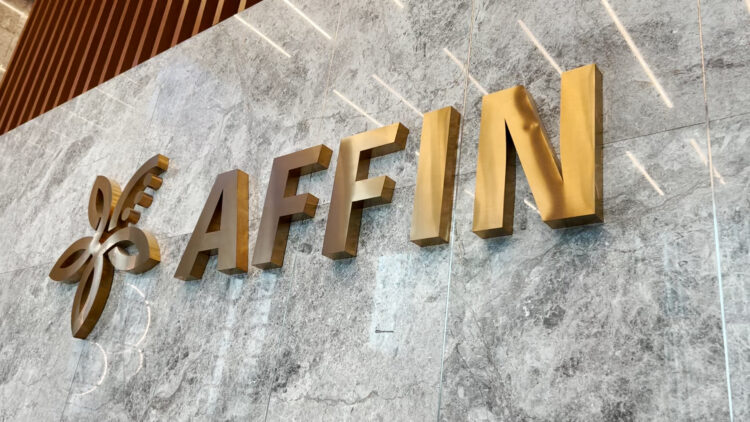In the age of disruption and change, agility and adaptability have become key factors to ensure the survivability of a company.

Malaysia-based Affin Bank Berhad, the financial holding company of Affin Islamic Bank Berhad, Affin Hwang Investment Bank Berhad, Affin Moneybrokers Sdn Berhad, Generali General Insurance Malaysia and Generali life Insurance Malaysia, saw the need to transform with the changing times and this was what started them on their journey of Metamorphosis that started in 2020.
Joanne Rodrigues, group chief financial officer at Affin Bank, shares how the management team of Affin led a successful transformation charge for the Group over the last 3 years that spanned the period of the pandemic and is now into its second phase of transformation, call A25 with aggressive targets for 2025.
COVID-19: Banks weighing in to support the community
One notable event during the whole transformation plan was the COVID-19 pandemic. Rodrigues conceded that the pandemic was a difficult time for everyone.
“We had to weigh in and support the community,” she said, recounting how Affin Bank, like most lenders in the world, had various programs and moratoriums to help small businesses and individuals in need.
During the three years since 2020, Affin implemented the Financial Assistance and Instalment Relief (FAIR) Program, financial aid for their customers wherein they delay payments depending on their needs. They also participated in government grant programs to support smaller businesses struggling at the time.
The transition to WFH
With most cities in lockdown, banks were forced to transition to the work-from-home set-up to carry on with their operations.
She recalled how they had to shift to the new work arrangement overnight, mobilizing over 1,000 people when a lot of them didn't even have computers at home. She said they had to provide laptops in two weeks for their staff so that they could work at home, all this while competing with other companies which were undergoing the same transition.
Operations and frontliners’ safety
Among the uncertainties amid the COVID-19 pandemic situation is the question of balance between operations and frontline safety. “That was a concern because as banks, we needed to remain open to provide banking services to our customers,” Rodrigues recounted.
She explained that they had to devise crisis team systems, with Team A and Team B in the branches, to make sure that they had backup if one of the members of any team got infected.

“Trying to manage that was quite (an) effort in coordination and gave us a new appreciation of the Business Continuing Planning which all banks already have in place.”
Joanne Rodrigues
The Metamorphosis Plan
In the face of the challenges and with seemingly no choice but to transform, Rodrigues recounted Affin Bank’s initiative to catch on: the Metamorphosis Plan.
She said they coined the term because, like a butterfly, they want to change into something they were completely different from what they were before. As with most of the companies in various industries across the globe during the time of the pandemic and disruption arising from the Industrial Revolution 4.0, Affin Group needed to be ready for new modern challenges.
The importance of vision
“If you don’t have the vision, you don’t know where you’re going,” Rodrigues emphasised how important a vision was to galvanise the whole company together to work towards a common goal. She believes that in a transformation charge, failure comes when one fails to excite the people as they cannot see one’s vision. “If they cannot see your vision, they don’t know what they’re working for… and they won’t work.”
Affin Bank’s Vision is to be the most creative Financial company in Malaysia: creative in terms of innovation and technology, creative in terms of unrivalled customer service and creating value for our shareholders, customers, and people, explained Rodrigues.
They started the journey of transformation with its first phase called the AIM22 Metamorphosis Plan at the start of the financial year 2020, which centred on five key focus areas namely value creation for the stakeholders, increasing productivity and efficiency, increasing current and saving account balances, digital transformation acceleration and focusing on people and building a high-performance culture within the Group.
The AIM22 plan went very well for the Group as they came to the close of 2022, they had met most of their key targets and collected a few awards along the way such as the Best Bank for Digital Solutions, Malaysia from Asiamoney, Digital Transformation of the Year 2022 and Website of the Year 2022 by Asian Banking and Finance and Most Innovative New SME Product of the Year 2022- Malaysia by International Finance Awards UK, to name a few.
Not to rest on its laurels, Affin Bank is now focusing on its next phase of transformation, the A25 Plan. A25 seeks to achieve its vision through five main strategic thrusts: sustainable return on equity, wherein the lender aims to elevate the ROE level to 10%; banking 4.0, where they seek to provide accessible banking services anytime, anywhere; efficiency x4, wherein they strive to maximise productivity through operational excellence; enhance brand value, where they target being a progressive organisation; and ESG focus, wherein they aim to bring in responsible banking with an impact.
“This means we have another plan and direction of where we want to be in 2025,” said Rodrigues. The management takes great pains to ensure that the plans are communicated regularly throughout the whole Group through various mediums such as town halls, email blasts and newsletters. There is also a lot of work involved in managing morale and inculcating the right values and cultures within the organisation.
Technology as the biggest catalyst for transformation
“The biggest catalyst is, of course, technology.”
The Affin Bank CFO recalled how new technology grew exponentially during the COVID-19 situation, pointing out that the pandemic accelerated the acceptance of technology to facilitate work such as video conference facilities, shared folders, and the reduction of dependency on hard copies. She said that banks have always been the “bedrock of any economy”, so it is always slow to change.
“Banks always thought they could take their time… but the pandemic showed us that there is no time.”
She admitted that Affin underwent a massive transformation in the field of technology as they are “latecomers” in the game. Recently, AFFIN introduced its new branch delivery system that can now onboard customers in 7 minutes compared to the previous 45 minutes, an automated safe deposit box service and it is on the verge of launching its new mobile app called AffinAlways (*editor's note: The AffinAlways mobile app was launched in October 2023).
This is on top of all the upgrading of technology capabilities that are happening within the Group and changing the way it works. Technology features in all aspects of the bank that the CEO and CFO these days need to have a good understanding of technology terms and concepts.
This knowledge can no longer be confined to the group technology officer, but all management is required to understand at a basic level the new technology in the market and how it can be implemented to improve business productivity and sales.
Transformation for CFOs
Rodrigues reflects that being part of the AFFIN Transformation these past few years, she has become acutely aware of the changing role of a CFO. The expectations of the CFO have been growing over the years but recently, the calls for a more business-savvy forward-looking finance division and CFO have been louder.
“It starts with the numbers,” she said, taking note that the targets help management to focus on the key areas to work on. However, as you start to dig deeper, you will find that there is more than just numbers that drive the transformation. Suddenly a deep understanding of accounting and finance is not enough. The CFO has to support management by weighing in on other areas such as strategy, transformation culture, risk management, the path to a zero-carbon footprint and the list goes on.

CFOs are now business partners, and the conversations are more about the future direction of the business as opposed to where it came from i.e. how the business did last quarter or last year. The measurements of success start to change just as the competencies of the CFO are required to change. CFOs now are required to have competencies such as business skills, transformation skills, leadership skills, people skills and agility skills.
Rodrigues said: "To be a good leader, one must be visionary and a good communicator, as one must be able to look through a process from start to end. This way, they would know the steps needed to get to the desired goal."
* Editor's notes: This article is part of the Cxociety Coffee Table Book project (The Project) which chronicles the journey and experiences of senior business, operations, finance and technology leaders in Asia in recent years. The Project illustrates the tenacity, ingenuity and resiliency of the human spirit in the face of seemingly endless challenges.
With nearly 50 stories chronicled in The Project, it is a must-read compendium of learnings and experiences from seasoned professionals in the region.




